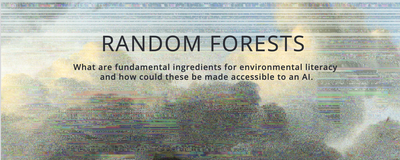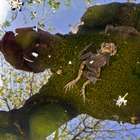Fieldguide to Random Forests

Abstract
Random Forests explores what environmental machine learning could entail and if an artificial agent could become environmentally literate.
Until very recently the ability to relate to the environment was limited to plants and animals, but now machines are starting to blur those lines. Artificial Neural Networks can be ‘trained’ using vast data sets. Over time it recognises dogs, snowmobiles, people, etc through machine learning.
What does this emerging 'synthetic worldview' mean for our appreciation of the environment and the appreciation of our machines for the environment? Could environmental literacy in the artificial agents that populate our environment create any opening towards practices of environmental solidarity, intimacy, affinity, allegiance, reverence, commitment and kinship?
Could an AI serve as a canary in a coal-mine, an environmental guide, or even mentor? Or would it become a tyrannic overlord obsessed with counting shorebirds and rare plants.
If you are interested in obtaining a hard copy of this book, please contact Theun Karelse.


